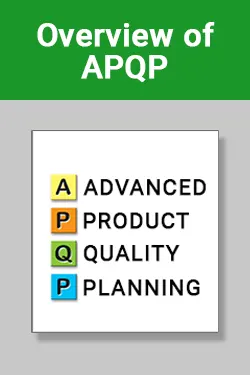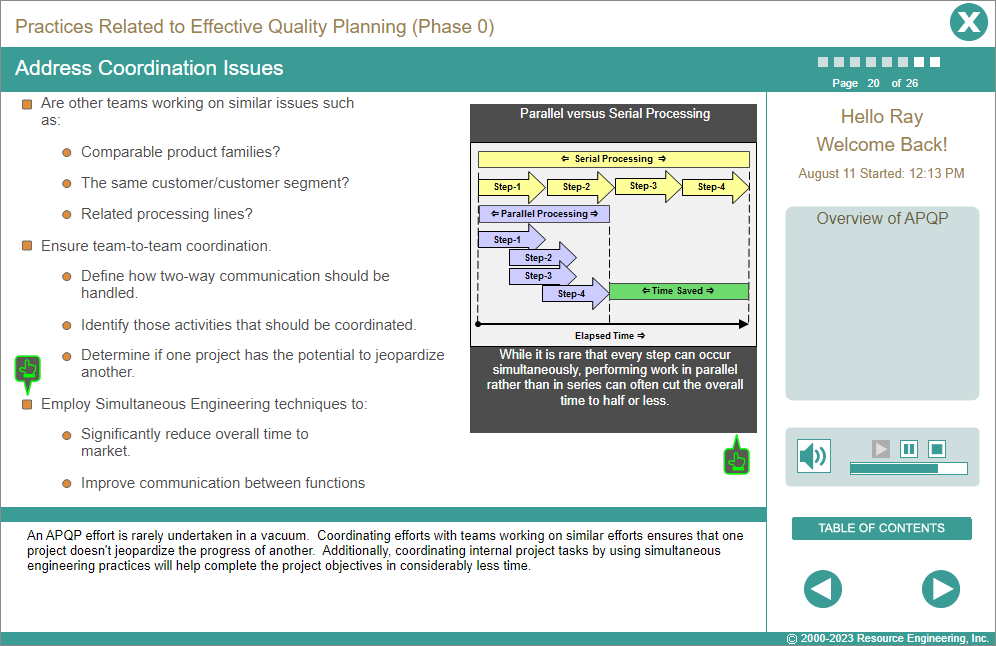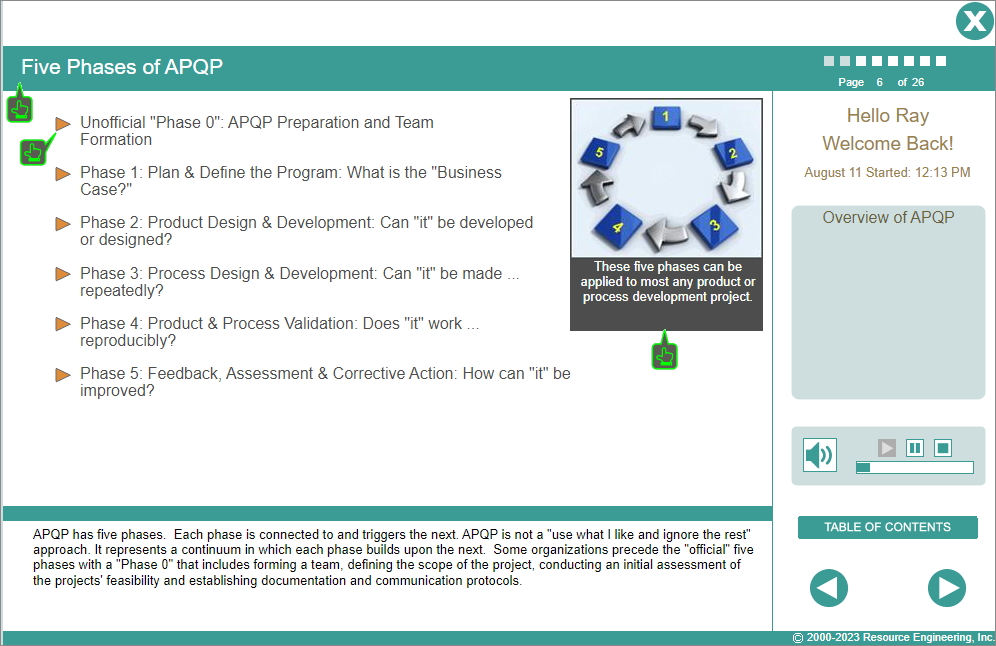Course Information
Overview of APQP Training
Learners will be able to:
- Define the scope and purpose of APQP.
- Describe the steps of the APQP process and how each phase builds on the previous phase.
- Explain how quality improvement tools and techniques are used in the APQP process.

About This Course
Advanced Product Quality Planning, or APQP for short creates a roadmap for developing new products complete with time-based milestones and decision points along the way. A major objective of APQP is to provide a vehicle for suppliers and with customers to work together when developing a new product. This helps assure that the product is delivered on time and with the highest added-value. New Product Introductions (NPIs) have a greater success rate when the principles of the APQP approach are followed.
APQP has five formal phases. Each phase is connected to and triggers the next. APQP is not a “use what I like and ignore the rest” approach. It represents a continuum in which each phase builds upon the next. Some organizations precede the “official” five phases with a “Phase 0” that includes forming a team, defining the scope of the project, conducting an initial assessment of the projects’ feasibility and establishing documentation and communication protocols.
The Overview of APQP training is ideal for managers and supervisors who oversee departments responsible for Advanced Product Quality Planning. This is a short online course intended to explain the basic approach and scope of the Advanced Product and Quality Planning (APQP) methodology. We also offer the Fundamentals of APQP that is designed for employees who are responsible for conducting or participating in the APQP process.
IMPORTANT NOTE:
This course is a great way to learn the basic concepts and terminology of APQP. It is taken from our comprehensive Fundamentals of APQP course. If you have already taken the Fundamentals of APQP course, you have already seen the content covered in Overview of APQP.
- Mistake-Proofing or Error-Proofing or the equivalent understanding of the difference between fixing problems after they happen and preventing problems from happening in the first place such.
- English (EN-US)
- Chinese (simplified) (ZH)
- Czech (CS)
- French (FR)
- German (DE)
- Italian (IT)
- Japanese (no audio) (JA)
- Korean (no audio) (KO)
- Polish (PL)
- Portuguese (Brazilian) (PT-BR)
- Romanian RO)
- Russian (RU)
- Spanish (ES)
- Vietnamese (no audio) (VI)
Course Objectives
- Explain the purpose of the APQP process.
- Describe the five phases of the APQP process.
- List the steps necessary to prepare for an APQP.
Course Outline
Lesson 1 | Overview of APQP
- Overview of the five phases of the APQP Process.
Course Test Challenge
- An assessment of the learner’s progress in this course.

4.5 out of 5 stars
Comments from Learners About This Course
- Good overview of APQP.
- Excellent self directed presentation and clarifies all aspects of APQP.
You may also be interested in…
- Advanced SPC Training – Comprehensive training in how to implement statistical process control including setting up control charts and conducting process capability studies.
- FMEA Training – Complete online training in how to conduct Design and Process FMEAs and to reduce high Risk Priority Numbers, how to customize FMEAs for a specific business and how to maintain improved processes using a control plan.
- Fundamentals of APQP – A Master Course that helps learners understand the five phases of the APQP process and apply it to the development of new products and their corresponding processes.
- PPAP Training – A Targeted Training Course on the Production Part Approval Process.




